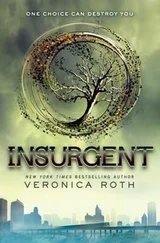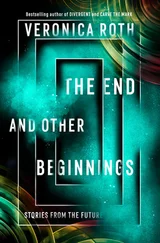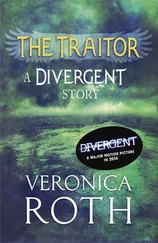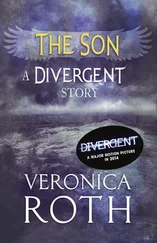The anger had not left her, might never leave her, but it now had to share the space with something else, and that was the certain knowledge of her mother’s worth.
Branded
by Kelley Armstrong
THERE’S NOTHING ASboring as civics class, and in the fortress, that’s really saying something. Still, monotony can be good, if the alternative is fighting for survival every second of every day until you die a horrible, violent death, your bones gnawed and sucked clean by scavengers, not all of them animal. That’s the message of civics class, and students get it every six months to remind us how good we have it in the fortress. After seventeen years, I could recite it in my sleep.
As the minister droned on, Priscilla elbowed my ribs. “Braeden keeps looking at you, Rayne.”
I glanced over. Braeden smiled. He mouthed something, but I didn’t catch it—I was too busy looking at that sad twist of a smile. Maybe there was still time. Maybe I could—
But I couldn’t. It was done.
The minister had now begun the history lesson, just in case we’d somehow forgotten how we all got here.
“The end began when the world discovered the existence of supernatural beings. Witches, sorcerers, vampires, werewolves, and others, all living among us. When they were revealed, the natural order was destroyed forever, and the very earth revolted. Famines, earthquakes, tsunamis . . .
“Then those supernatural beings decided that infiltrating our world was not enough. They needed to infiltrate our very selves. They convinced scientists to modify ordinary humans with supernatural DNA, promising superior soldiers for our wars against those who sought to take our food supplies and our habitable land.
“And so we took refuge in our fortresses, where we continued to live as civilized beings, protected from the Outside. Yet even here, we are constantly under siege from another threat, equally dangerous. Overpopulation. That is why—”
The classroom door flew open. Two regulators burst in, one armed with a cudgel; the other, a syringe.
“Braeden Smith,” barked the cudgel-wielding one.
Every kid surrounding Braeden stumbled over himself getting away—chairs toppling, desks scraping the wooden floor—until Braeden was alone. He rose slowly, hands instinctively going to the pockets of his grease-and-soot-streaked trousers, then thinking better of it and lifting them.
“Is this about the Fourth’s horse?” he asked. “He says my father didn’t shoe it properly but—”
“Braeden Smith.” The regulator with the cudgel walked toward Braeden. “You are hereby charged with breaking the First Law of the fortress.” The whispers and gasps of the students almost drowned out his next words. “You have been accused of having supernatural blood. Werewolf blood. You will be taken to the stocks and watched for signs—”
“What? No! I’m not a—”
The regulator grabbed Braeden by the arm and twisted it, but Braeden broke free. He looked around, as if lost, then his gaze fell on me. He let out a snarl and flew at me. I stood my ground as Priscilla and the other girls ran, shrieking.
“You did this!” Braeden said as he charged. “You treacherous bitch!”
I made a move to dive for safety, but he grabbed me in a headlock, still ranting as I struggled. The regulator with the syringe crept up behind Braeden. As he injected him, Braeden stiffened. His hand dropped to mine. A quick squeeze. Then he hit the floor, unconscious.
A day later, they had their proof. Braeden had transformed into a wolf. We’d known he would. Braeden had grown up on the Outside and knew the gene ran in his family. As with most supernatural powers, it left whole generations untouched. We had hoped it would pass Braeden. It didn’t.
On the day of his branding, nearly everyone in the fortress crowded into the square. I read once about hangings in the Old World, how people would watch with great delight and baskets of food. There was no joy here, certainly no feasting. We came because if we did not, then someone—a regulator, a minister, a prefect—might notice our absence and decide we were not as committed to the laws as we should be. Or, worse, that we had cause to fear the same fate for ourselves.
They’d given me a place of honor, on the raised platform with the First’s and Second’s families. As Priscilla clutched my hand, I noticed her mother frown, but Priscilla’s chin shot up in a rare show of defiance, and she held my hand tighter. Her father noticed and nodded, first at me, then at her. She glowed at his approval.
Priscilla and I had always been schoolmates, but now that she believed I’d informed on a werewolf, I had risen to the status of friend. Friends with the Second’s daughter. How my mother would laugh if she were here to see it. No, she wouldn’t laugh. She’d rub her hands and plot how to use it to her advantage. That’s what it was all about in the fortress—getting ahead, surviving and thriving.
For my mother, surviving had meant accepting life as a whore. It’s a real job in the fortress, just like a blacksmith or a doctor or a farmer, and it’s considered just as necessary for the stability of the community. She accepted it. I wouldn’t. There were other ways to survive, if you were willing to take chances, including the chance that you wouldn’t survive.
They led Braeden out. He’d been stripped to the waist, his feet bare, his trousers even filthier than they had been when the regulators had taken him in. His face was unshaven, dark shadow on his cheeks; his hair unwashed, falling over his face. Making him look like an animal. See? This is what we saved you from.
I looked at his chest—the lean muscles, the old scars, the healed burns—and remembered all the nights lying in our cubbyhole, touching him, whispering with him. There were new marks now, lash welts crisscrossing every inch of bare skin.
“They’ll beat me, Rayne,” he’d warned. “You need to be ready for that.”
“I know.”
I tried not to see the welts, but of course I did, and the rage built inside me until Priscilla’s hand twisted in mine. I realized I was clutching too tight and loosened my grip.
Taking deep breaths, I forced myself to look at the figure on the stage and see another Braeden. To see the boy who’d been bought from the Outsiders to replace the blacksmith’s dead son.
In the fortress, couples are allowed only one child. If that child dies, they can have another baby, but that isn’t a solution for someone like the blacksmith, who needed a replacement for the strong, healthy ten-year-old son who’d been his apprentice.
The day that Braeden was brought in, everyone had again found an excuse to be in the square. They’d ogled the boy, who’d looked much as he did now—barefoot and filthy. They’d whispered about his eyes, how savage he looked, how angry, how dangerous. But I hadn’t seen anger—I’d seen terror.
I remembered him again, at twelve. A prefect’s son and his friend had cornered me behind the schoolhouse and decided that since I was going to be a whore someday, I should be willing to take off my shirt for a credit, and if I wasn’t, then they’d take it off without paying the credit. Braeden came around the corner and sent them scattering with an ease that made my weak kicks and punches look like the struggles of an infant. I’d asked him for lessons in fighting and said I’d pay. He’d said he didn’t need that kind of pay, and I’d lost my temper, snarling that I wasn’t a whore and when I said pay, I meant credits. He’d been amused, I think. But he agreed. Only he wouldn’t trade for credits—he wanted me to teach him something: how to read and write.
When they lifted the brand, I was thinking of Braeden again, at fourteen, the first time he kissed me. I tried to focus on the memory, but I could smell the fire and see the glowing metal.
Читать дальше












